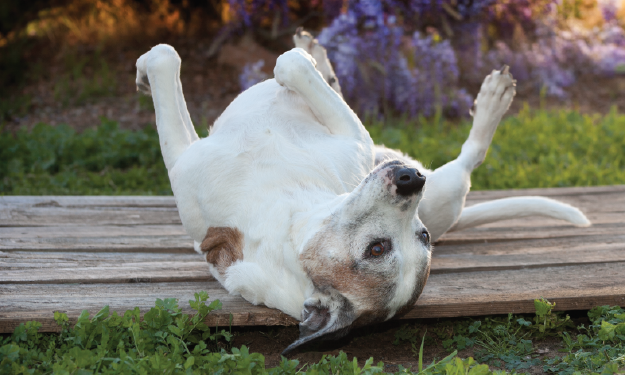Osteoarthritis and Hip Dysplasia in Dogs

The hip and knee are the most common locations for osteoarthritis in dogs, but each location has dramatically different causes and treatments.
The majority of osteoarthritis of the hip is due to hip dysplasia. This disease is a result of genetics, leading to poor hip conformation, laxity, and subluxation (loose joints) while the dog is young. As the dog ages, the joints actually tighten up, but the resulting poor fit of the joint (incongruence) leads to grinding of cartilage and inflammation of the joint. Many adult dogs with severe hip dysplasia and osteoarthritis have no normal cartilage remaining in their hip joint.
The common signs of osteoarthritis of the hips in dogs are limping and exercise intolerance. Exercise intolerance is actually the most common, while fewer dogs actually limp with hip dysplasia.
There are two broad categories of management of hip dysplasia and osteoarthritis in dogs. They are medical and surgical. It is important to remember that even when surgical management is elected, medical management may be necessary still. This is particularly true when one hip receives surgical therapy, but the opposite side remains diseased.
Medical Management
Medical management of hip dysplasia includes 5 treatment principles:
- management of body weight
- nutritional supplementation
- moderation of exercise
- physical therapy
- medications
Surgery
Surgery for hip dysplasia is indicated when medical management no longer maintains quality of life and function. It may also be indicated when medical management causes complications. The decision to pursue surgical treatment should be made by the owner in consultation with the veterinarian, but the owner must determine quality of life for their pet.
There are two surgical options for the mature dog with hip osteoarthritis. They are femoral head and neck osteotomy (FHO) and total hip replacement (THR).
Femoral Head Ostectomy (FHO)
Femoral Head Ostectomy is an excellent option in small dogs (and cats). In this surgery, the ball of the ball and socket joint is removed. The hip then works by having the leg supported by the gluteal muscles. (This procedure was developed for the treatment of hip infections in people.) Because of their small body weight, small dogs and cats tolerate this procedure very well. The outcome is not always as good in larger dogs, but it may be necessary for financial or medical (infection) reasons. Ultimately, this procedure’s outcome is unpredictable, but combining the procedure with professional physical therapy improves outcomes.
Total Hip Replacement (THR)
Total hip replacement has been performed in thousands of dogs in the US and the world. The outcome is generally excellent in 85% to 90% of dogs; however, when complications occur, they can be frustrating and expensive. Traditionally, THR was performed as late in life as possible because of concern for the implants wearing out. The development of cementless implants allows total hip replacements in canine patients as young as 8 months of age.